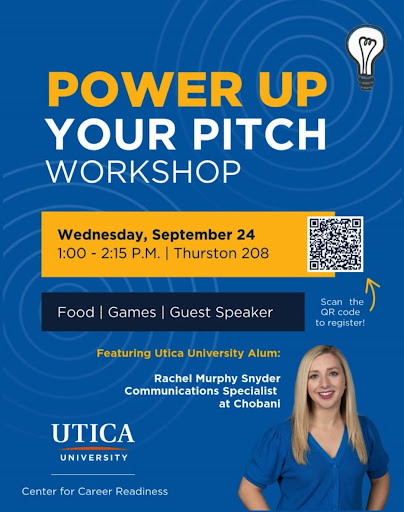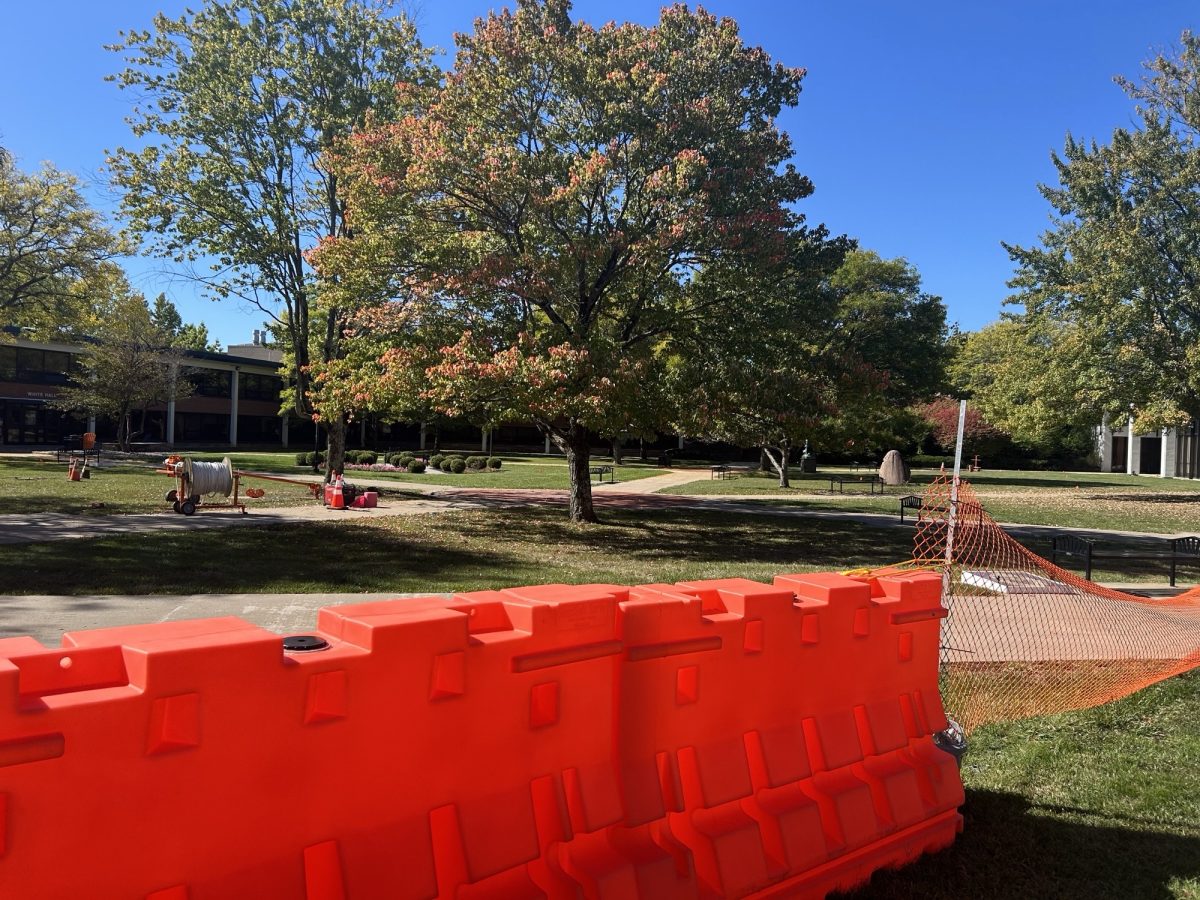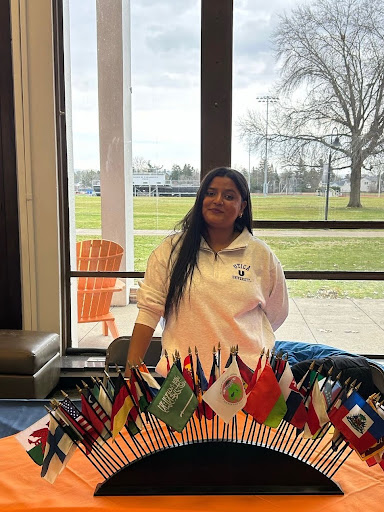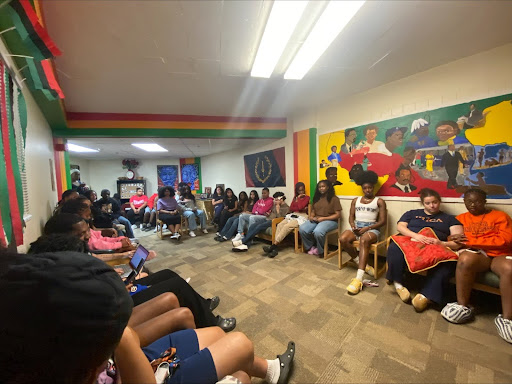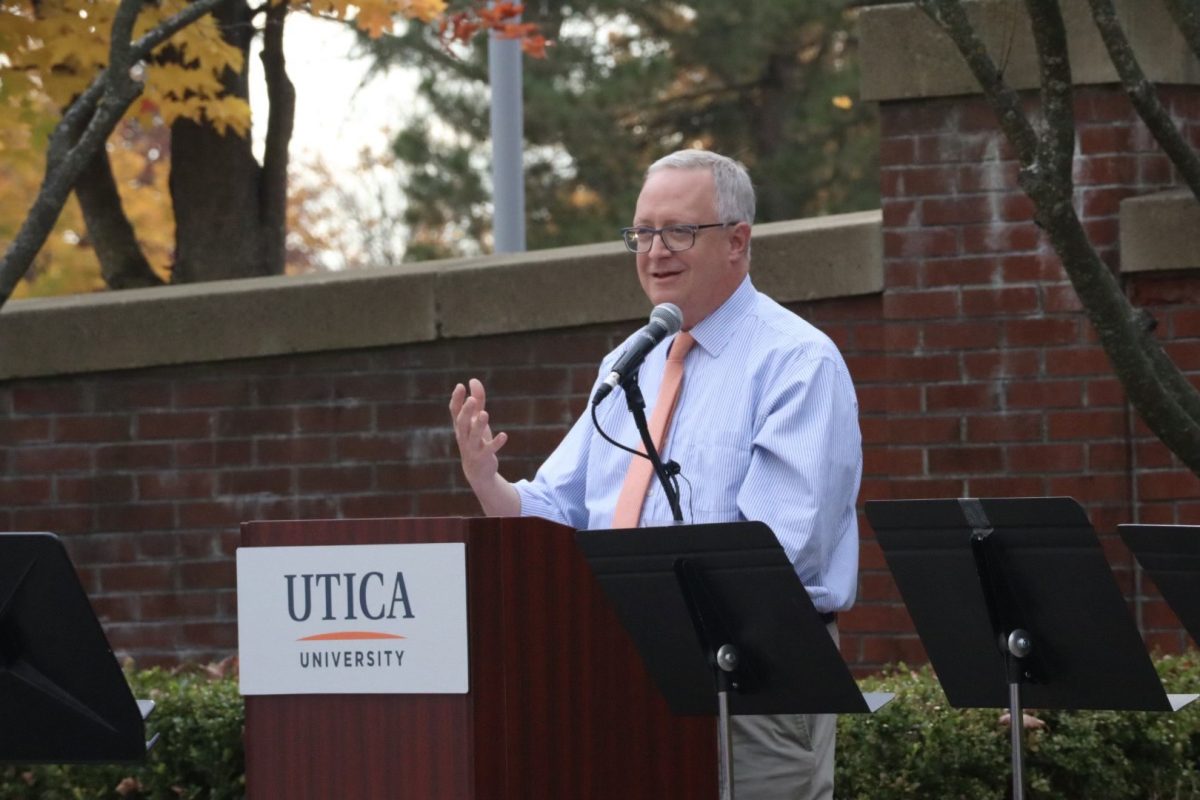Utica University is in the process of filling the Director of the Center for Career Readiness position following Kailea Murray’s departure. As job candidates visit campus this week, Dr. Anthony Baird, who oversees the center, outlined plans to support students during this transition and strengthen the center’s services moving forward.
Staff changes have left the Center for Career Readiness in a state of transition. Despite these challenges, the university is seizing the opportunity to reimagine how it can better support students in their career development.
Dr. Anthony Baird, Vice President for Diversity, Equity, and Inclusion (DEI) at Utica University, has taken on the responsibility of overseeing the center during this period. Baird, who joined the university in 2020, brings extensive experience in higher education leadership and career development. Prior to his current role, he served as Director of Corporate Programs Development at UMass Dartmouth, where he developed career readiness programs for both undergraduate and graduate students.
Baird holds a Doctorate in Education with a focus on Higher Education Leadership & Management from Johnson & Wales University and a Master of Education in Counseling from Bridgewater State University. His leadership in DEI initiatives has been instrumental in shaping a more inclusive campus climate, which he aims to integrate into the career services offered at Utica.
“My immediate priority is ensuring that students continue to have access to essential career services while we work through this transition,” Baird said. “That means stabilizing operations, identifying key areas where we can provide immediate support, and accelerating the search process for new leadership and staff. I am committed to ensuring continuity of services and strengthening the center in a way that aligns with the evolving needs of our students.”
Despite the challenges, Baird views the transition as an opportunity to innovate. “We are assessing how to best leverage existing resources, including technology, partnerships, and collaborations with faculty and alumni, to continue offering career guidance, resume support, and networking opportunities,” he said. “Additionally, we are working diligently to fill key vacancies with individuals who will bring fresh perspectives and expertise to the center.”
In the long term, Baird envisions enhancing career services to better meet student needs.
“The goal is not just to restore services but to enhance them in a way that is more responsive to student needs and the demands of the job market,” he said. “We are actively working on hiring exemplary leadership personnel, expanding employer partnerships, and exploring new models for delivering career services.”
Baird emphasized that the values of equity and access will be central to the center’s future direction. “Equity and access are at the core of effective career readiness practice,” he said. “Moving forward, I want to ensure that all students—regardless of their background—have the tools, networks, and opportunities they need to be competitive in the job market.”
Short-term plans include maintaining core services such as resume resources, career fairs and access to the Handshake Employment Portal.
“We are also looking at expanding virtual career coaching options and leveraging alumni networks to provide mentorship and career insights,” Baird said. “While staffing transitions are ongoing, we remain committed to ensuring that students continue to receive valuable career development opportunities.”
Baird also stressed the importance of strengthening employer partnerships and internship opportunities. “We are actively working on strengthening existing employer relationships and forging new ones, particularly in high-demand industries,” he said. “Additionally, we are looking at innovative ways to connect students with internships, including remote and hybrid work opportunities.”
As Baird oversees the department, he offered advice for the next director.
“My advice would be to stay student-centered, proactive, and adaptable,” he said. “Career services must evolve with the changing workforce, and the next director should focus on strengthening employer partnerships, leveraging technology, and ensuring equitable access to career resources. Most importantly, they should foster strong connections with students, faculty, and alumni to create a career ecosystem that supports student success beyond graduation.”































































